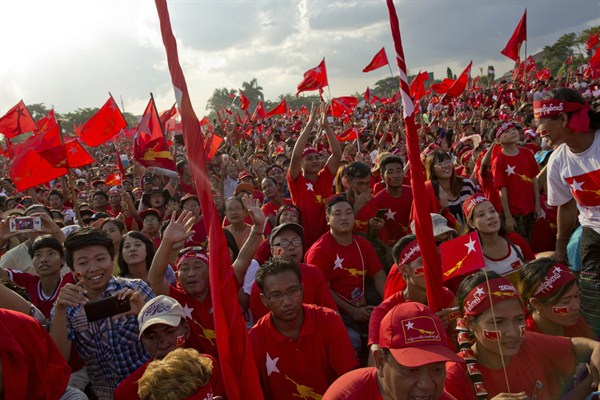On Nov. 8, an estimated 30 million people took part in Myanmar’s first free national election in a quarter-century. From the shores of the Andaman Sea to the Himalayan uplands, many lined up in the pre-dawn gloom before voting stations officially opened at 6 a.m. Vying for citizens’ votes across some 1,171 constituencies were 6,189 candidates from a total of 93 parties. For most voters, however, it came down to two. On one side was the ruling Union Solidarity and Development Party (USDP), the drab political proxy of the powerful Tatmadaw, Myanmar’s military, which has ruled the country for more than half a century; on the other was the opposition National League for Democracy (NLD), led by the talismanic Daw Aung San Suu Kyi, a Nobel Peace Prize laureate and international symbol of Myanmar’s long struggle for democracy. Two parties: one symbolizing decades of military rule, the other symbolizing change.
In the end, the people’s choice was unambiguous. “I think it’s very important for us to choose a new government—a good government,” said Maung Maung Gyi, a 56-year-old businessman, shortly after casting his vote for the NLD at a Buddhist pagoda in Mandalay, Myanmar’s former royal capital. “The whole world is watching this election.” By evening, euphoric crowds of NLD supporters, draped in the party’s red star-and-peacock insignia, had gathered in the streets to cheer the unofficial election results, which showed massive leads for NLD candidates in most of the country. This was later confirmed by the Union Election Commission, which released official results indicating the NLD had gained an astonishing 390 of the 498 elected seats in the bicameral parliament. Despite its incumbency and massive advantage in resources, the USDP won just 41 seats, with the remainder going to small parties.

